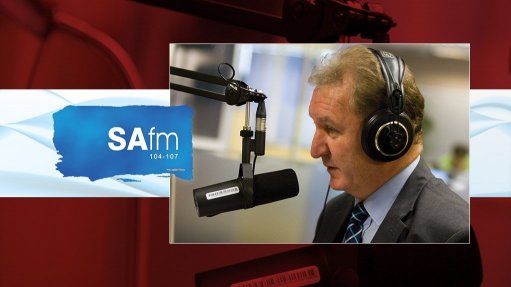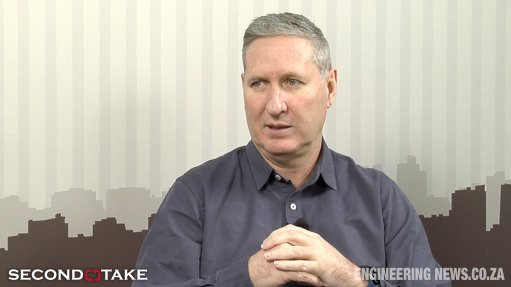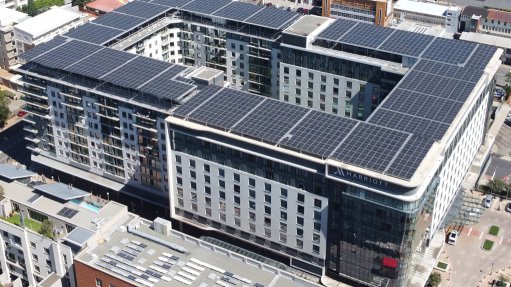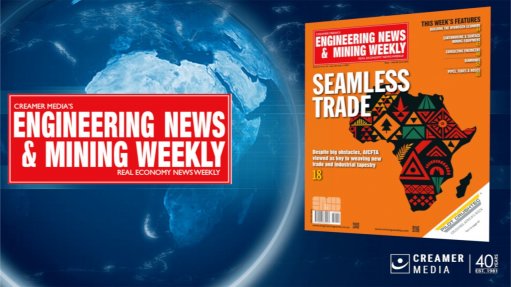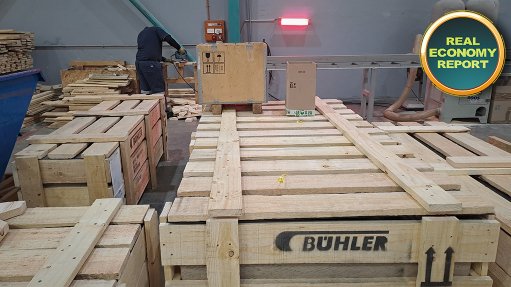Foundational skills gaps fuel university dropout rates
This article has been supplied as a media statement and is not written by Creamer Media. It may be available only for a limited time on this website.
Many South African school leavers have not been adequately equipped with the basic literacy and numeracy skills that they need to succeed in tertiary education. This is especially the case for students who attended poorly resourced schools and from lower socio-economic backgrounds. The result of this is a high university dropout rate that aggravates the skills shortages that are holding the country back. This includes the efficient adoption of Fourth Industrial Revolution technologies, all of which rely on sophisticated skills sets. It also hampers transformation and fuels inequality considering that many of these students are from previously disadvantaged backgrounds.
So says Marco Maree, Expert Development & Training Advisor of Triple E Training, a specialist adult education and training (AET) provider which is appointed by industry to help develop a talent pipeline. The company’s General Education and Training Certificate: AET learnership has placed many learners on an academic path by equipping them with the skills that they need to complete “second chance” matric with a Bachelor Pass.
“University dropout rates in the country are a concern especially considering the dire skills shortage. Also not to be over-looked is the average length of time that it takes South African students to complete their degrees and join the workforce because they struggle. According to the Department of Higher Education, only 6% of South African adults held a degree as their highest level of educational attainment in 2021. This is far below the norm in most countries, although the proportion of South African adults aged between 25 and 64 who held a degree increased almost 1% from 2011. This is about 500 000 citizens. However, with between 50% and 60% of first year university students currently dropping out, we are still struggling to develop a talent pipeline. Meanwhile, of the 2010 cohort, only 22% of students achieved a three-year degree within three years. Just 39% complete their degrees by the fourth year and only 56% finalised their studies by the sixth year. The extent of the challenge that we face is very clear,” Maree says.
There are many reasons for the high university dropout rate. One of them is inadequate preparedness for the demands of tertiary education. This includes a lack solid basic-education skills, including literacy and numeracy.
Maree says that many universities have found that school leavers generally had shortcomings in their reading comprehension skills that they needed to understand problems that they were asked to solve. In extenuating circumstances, they did not even have knowledge of vocabulary used for questioning.
Some of these university students only started learning English, the formal language of learning and teaching, from grade 3, although they knew how to read some words before entering primary school. Many of the schools attended by these university students also stopped teaching English reading comprehension skills in grade 3 or grade 4.
There are also flaws in the way in which reading skills are tested in poorly resourced secondary schools. These tests are mainly being done just to satisfy assessment requirements with scant regard given to encouraging continuous reading among learners. Reading as a pastime is also seldom urged and learners are, thus, not exposed to the range of available genres.
Many of these university students also come from lower socio-economic backgrounds where reading is considered a luxury. Therefore, their parents never read to them in their fledgling years or encouraged them to read. In many instances, these families do not place much value on the written word, preferring oral storytelling. Certainly, parent involvement in learners’ schooling is also associated with academic success. When children are read to before they enter the school system, they are more likely to be successful in acquiring reading comprehension skills. This is considering that they are more likely to approach print with high expectations of its meaning. They also tend to already possess knowledge of and familiarity with story structure and language of text.
“Working in many poor communities on behalf of our clients, we have found that the groups of learners who attend our AET classes dropped out of school in their younger years because their parents actually encouraged them to do so or showed very little interest in their education. This is because parents with low general literacy levels tend to not have high educational expectations and work-related aspiration for themselves and their children. Living in multi-dimensional poverty, there are other more important priorities to ensure survival,” Maree says.
Sub-standard reading comprehension skills are also linked to the poor performance of university students in maths subjects. Without a solid understanding of problem statements, one cannot apply mathematical concepts and solve equations accurately.
Even so, insufficient basic numeracy skills are also contributing to the high failure and attrition rate, and low throughputs at universities. Of particular concern are those learners who are struggling to transition from high school to mathematics-related subjects at university. Worryingly, university graduation in science, technology, engineering and maths (STEM)-related courses is about 20%. Already, there is barely a sufficient number of learners who take STEM subjects at school and of those who do, very few meet university-admission requirements for technical courses. This is contributing to the acute shortage of engineers in the country. South Africa only has one engineer for every 3 100 citizens. This is compared to one engineer for every 200 people in Germany. In Japan, as well as the UK and US, there is one engineer for every 310 people.
It also manifests in the very low number of South African PhD graduates. Between 2020 and 2021, 56,7% of local doctoral qualifications were held by international students and only
43,4% by South African citizens. This is compared to undergraduate demographics where 96,6% of graduates were South African and 3,1% foreign.
Worryingly, is the extent of the weaknesses that have been found in the mathematical literacy skills of entry-level students. Even learners who have been adequately exposed to mathematics curriculum have not been equipped with sufficient mathematical literacy to succeed in university. This has meant that lecturers have had to reexamine their assumptions about the competencies school leavers already possess. It has even been suggested that limitations be addressed by university curriculums.
Notably, many motivated and industrious adults who progressed through Triple E Training’s AET programmes have gone on to complete matric and then enrol at university. This is as part of company’s skills development programmes.
“Certainly, a large number of employees or unemployed individuals who are placed in our programmes intend entering vocational and occupational training after completing AET. However, there are individuals who have been encouraged by their employers to pursue academic learning paths because they demonstrate leadership traits. Annually, about 6 000 individuals obtain their Senior Certificate. However, this is out of 100 000 citizens who write this exam every year. And, out of the those who pass it, only 16% of have achieved bachelor-level passes. It is clear that our education system needs a dire overhaul,” Maree concludes.
Comments
Press Office
Announcements
What's On
Subscribe to improve your user experience...
Option 1 (equivalent of R125 a month):
Receive a weekly copy of Creamer Media's Engineering News & Mining Weekly magazine
(print copy for those in South Africa and e-magazine for those outside of South Africa)
Receive daily email newsletters
Access to full search results
Access archive of magazine back copies
Access to Projects in Progress
Access to ONE Research Report of your choice in PDF format
Option 2 (equivalent of R375 a month):
All benefits from Option 1
PLUS
Access to Creamer Media's Research Channel Africa for ALL Research Reports, in PDF format, on various industrial and mining sectors
including Electricity; Water; Energy Transition; Hydrogen; Roads, Rail and Ports; Coal; Gold; Platinum; Battery Metals; etc.
Already a subscriber?
Forgotten your password?
Receive weekly copy of Creamer Media's Engineering News & Mining Weekly magazine (print copy for those in South Africa and e-magazine for those outside of South Africa)
➕
Recieve daily email newsletters
➕
Access to full search results
➕
Access archive of magazine back copies
➕
Access to Projects in Progress
➕
Access to ONE Research Report of your choice in PDF format
RESEARCH CHANNEL AFRICA
R4500 (equivalent of R375 a month)
SUBSCRIBEAll benefits from Option 1
➕
Access to Creamer Media's Research Channel Africa for ALL Research Reports on various industrial and mining sectors, in PDF format, including on:
Electricity
➕
Water
➕
Energy Transition
➕
Hydrogen
➕
Roads, Rail and Ports
➕
Coal
➕
Gold
➕
Platinum
➕
Battery Metals
➕
etc.
Receive all benefits from Option 1 or Option 2 delivered to numerous people at your company
➕
Multiple User names and Passwords for simultaneous log-ins
➕
Intranet integration access to all in your organisation











